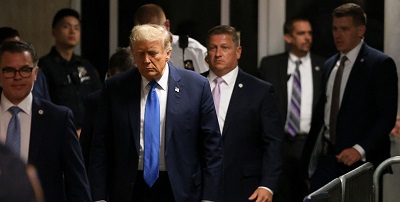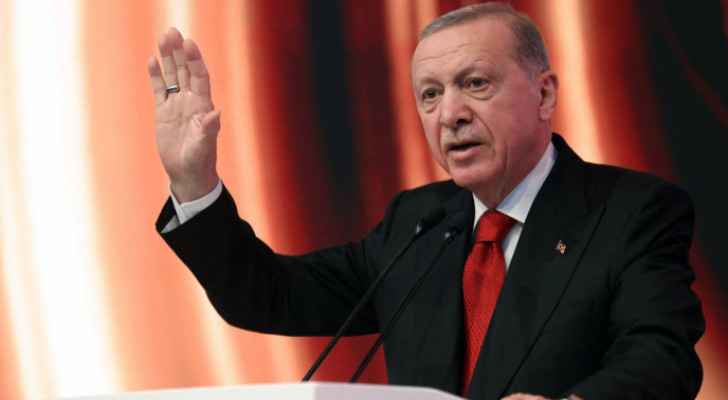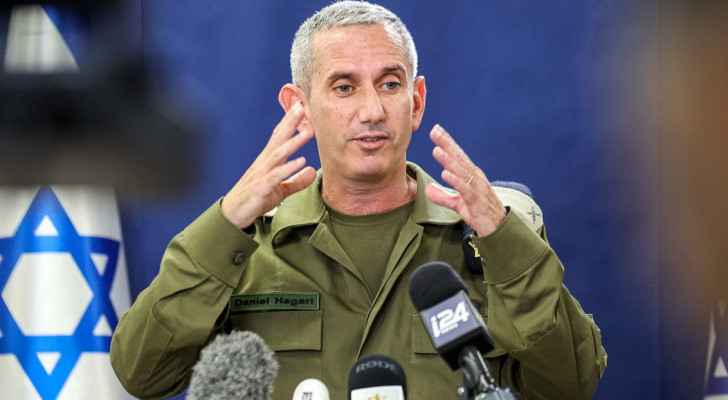Did the Rio Olympics overcome its hurdles and take gold?

AFB
Arriving amid grave political, financial and societal problems, Rio 2016 provided a showcase of sporting excellence set to a staggeringly beautiful backdrop. (Reuters)
By Gary Meenaghan Rio de Janeiro, Special to Al Arabiya EnglishTuesday, 23 August 2016
Even Mother Nature could not dampen Rio de Janeiro’s celebrations. After four years of fear-mongering and oft-unfair criticism, the Brazilian city closed South America’s first Olympic Games on Sunday with a sodden yet spirited party that all but ensured the past 17 days will be regarded as a sporting success rather than the disaster predicted beforehand.
Arriving amid grave political, financial and societal problems, Rio 2016 provided a showcase of sporting excellence set to a staggeringly beautiful backdrop. “The Games in Rio is a great challenge, but a challenge with success,” said Carlos Nuzman, the president of the organizing committee. “I am proud of my country, my city and my people. Rio has delivered history.”
Nowadays, all major sporting events attract criticism in the weeks and months preceding the action, yet Rio seemed to take an unprecedented battering before the curtain was raised. Some of the censure was much deserved, such as the abhorrent displacement of 77,000 people to make space for Olympics infrastructure and the shameful failure to clean the polluted Guanabara Bay. Other concerns were less valid.
The hyper panic surrounding the airborne Zika virus was always illegitimate given the cooler winter climate, which even resulted in Canadian athletes wearing mittens to the closing ceremony. Similarly, doubts that the city could safely host an event of Olympic magnitude were unjustified given Brazil successfully held the World Cup two years earlier and the annual Rio Carnival attracts close to a million tourists, double that of the estimated number that came for the Games.
A stray bullet pierced a media center tent, an Olympics shuttle bus had a window shattered by either gunfire or rocks depending on whose account you choose to believe, and a couple of controlled explosions were carried out on suspect bags — both of which, thankfully, proved false alarms. But for those visiting Brazil or watching on TV, the Rio Games were an undeniable success. “We love you Rio” and “We're sorry about Ryan Lochte” were two of the most repeated phrases scribbled on the Message Wall at the city’s international airport.
For residents, gauging the success of the Games is not so clear-cut: A short-term victory with long-term consequences. When the city won the hosting rights in 2009, it did so as an emerging superpower. Seven years later when the Games arrived, Brazil’s economy was suffering its longest recession since 1930 and an unemployment rate that had risen nearly 20 per cent in 12 months. Cariocas, despite all this societal suffering and rancid political corruption, played the role of hosts with excellence. Not because they wanted to prove the economists wrong or appease the politicians, but because they wanted a break from their own reality.
From the moment Paulinho da Viola gently strummed the national anthem at the Opening Ceremony, Brazilians cried, the world gaped and the narrative switched. Sport then took over. From Usain Bolt completing his remarkable, unparalleled triple-treble, to Michael Phelps adding five golds to take his record medal haul to 28, to Fiji winning the inaugural Rugby Sevens tournament to secure the country’s first medal of any colour, sport, as it always tends to do, drowned out the din of despair.
The hosts also enjoyed landmark success in the field of play, claiming a national record of seven golds. The one Brazil wanted the most was secured in front of 80,000 fans inside the Maracanã courtesy of a dramatic penalty shootout against new nemeses Germany. Neymar — who else? — struck the winner to help the country move on from the humbling 7-1 defeat at the 2014 World Cup.
The victory appeared symbolic; a triumph in the face of Occidental jokes; a restoration of respect. Suddenly, everything else seemed irrelevant. Fans sang once more of their Brazilian pride while one newspaper headline boldly screamed: “Finally, champions of everything”.
A week earlier, Rafaela Silva, a judoka from the infamous City of God favela, had claimed Brazil’s first gold of the Games. Her win came four years after considering quitting the sport due to racial abuse following failure to win in London. A few days after her success, the inspirational 24-year-old, while inaugurating a children’s school named in her honor, remarked that “Education is important because a career in sport is not for life.”
Silva’s statement was the perfect summary of the Rio Games. Sport, be it a career or the hosting of a major event, moves quickly. The media focus is already shifting to Tokyo 2020. How Rio reacts now it is a former Olympic city is more important than anything we have witnessed in the past 17 days. With the city’s mega-events all but having passed, the people and their wellbeing must be the priority going forward. As they should have been for the past seven years.
Those same people, however, can enjoy their sporting success a little longer. The Paralympic Games will start here on September 7. And if any city is able to appreciate the challenge of overcoming adversity, it should be Rio de Janeiro.
Latest News
 Prosecution lays out ‘criminal conspiracy’ in historic Trump trial
Prosecution lays out ‘criminal conspiracy’ in historic Trump trial King from Madaba: Jordan has always proven its ability to move forward with persistence of Jordanians
King from Madaba: Jordan has always proven its ability to move forward with persistence of Jordanians Safadi discusses war on Gaza with French, German delegations
Safadi discusses war on Gaza with French, German delegations Erdogan arrives in Baghdad for first official visit since 2011
Erdogan arrives in Baghdad for first official visit since 2011 “Israeli” army says it approved plans for “continuation of war in Gaza”
“Israeli” army says it approved plans for “continuation of war in Gaza”
Most Read Articles
- Turkey’s Erdogan in rare Iraq visit to discuss water, oil, security
- Safadi discusses war on Gaza with French, German delegations
- King from Madaba: Jordan has always proven its ability to move forward with persistence of Jordanians
- Prosecution lays out ‘criminal conspiracy’ in historic Trump trial
- Jordan sends 51-truck aid convoy to Gaza
- German envoy for Middle East hails Jordan’s role in Gaza aid
- Jordan applauds Azerbaijan-Armenia border agreement
- FAO organises workshop on ecosystem-based water solutions
- Japan hands over ultrasound equipment to the JNRCS
- US Supreme Court weighs ban on homeless people sleeping outside